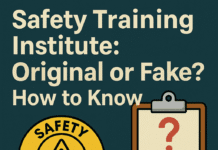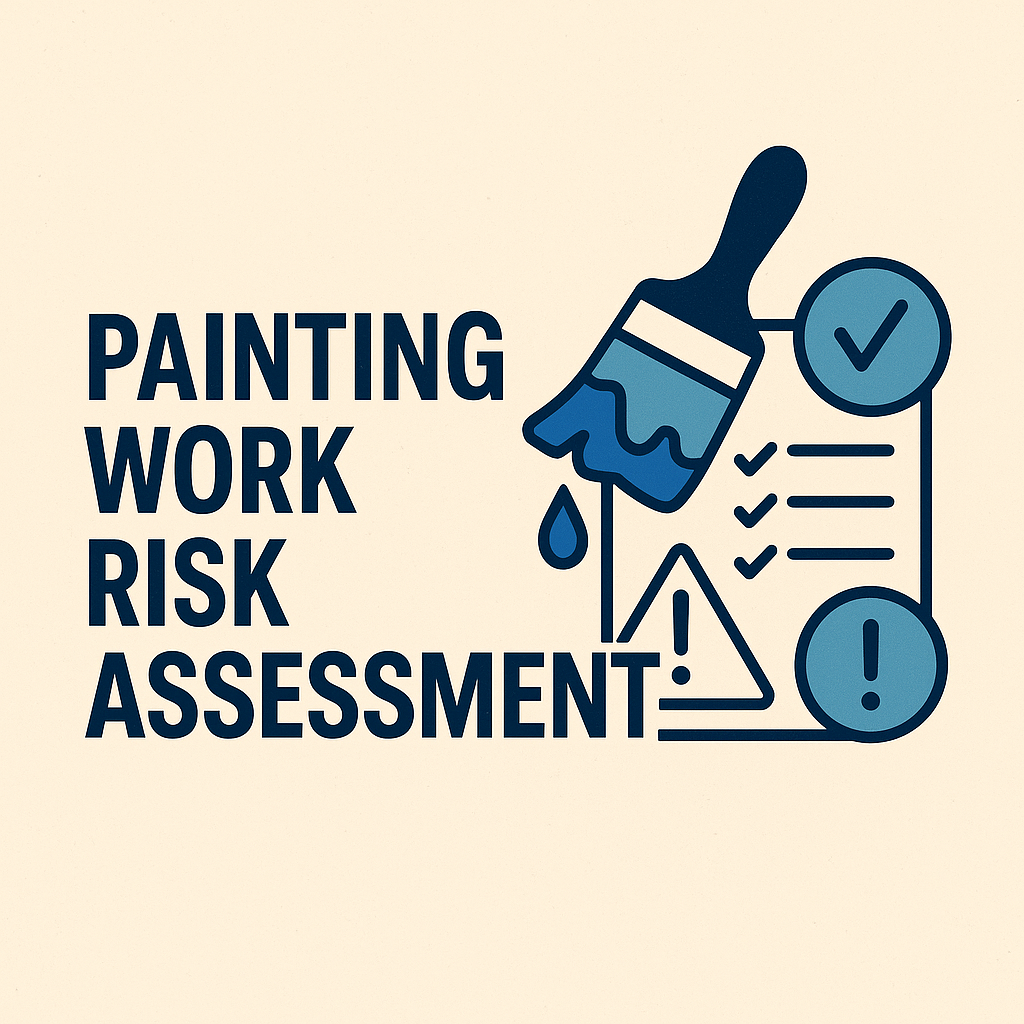
Safety Certifications Without a Degree: Breaking Barriers and Building Careers
In today’s dynamic job market, safety certifications have emerged as powerful credentials that not only enhance one’s skill set but also open doors to new opportunities. Contrary to the traditional belief that a degree is a prerequisite for a successful career, individuals can now pursue safety certifications without holding a degree. This article delves into the significance of safety certifications, dispels common myths surrounding the need for a degree, explores alternative paths to certification, and highlights success stories of individuals who have achieved professional success without a formal education.
Importance of Safety Certifications
Industry Recognition
Safety certifications are recognized and respected across various industries. Employers often seek professionals with relevant certifications as they indicate a commitment to workplace safety and compliance with industry standards.
Career Advancement
Individuals holding safety certifications often experience accelerated career growth. Certifications demonstrate expertise in specific areas of safety management, making professionals stand out in competitive job markets.
Legal Compliance
In many industries, safety certifications are essential for legal compliance. Certifying bodies ensure that professionals stay updated with the latest safety regulations and practices, contributing to a safer work environment.
Myths Surrounding Safety Certifications and Degrees
Dispelling the Misconception
There exists a common misconception that a degree is a prerequisite for obtaining safety certifications. This article aims to dispel this myth by showcasing real-world success stories of individuals who have thrived in their careers solely through acquiring relevant certifications.
Real-world Success Stories
Stories of professionals who have climbed the career ladder with safety certifications and without a traditional degree serve as inspiration for those hesitant to pursue certification due to societal norms.
Common Safety Certifications
OSHA 30-Hour General Industry Certification
The OSHA 30-Hour General Industry Certification is a widely recognized credential that covers a range of workplace safety topics. It is a valuable asset for professionals across various industries.
Certified Safety Professional (CSP)
The Certified Safety Professional (CSP) designation is a globally recognized certification for safety professionals. It signifies a high level of expertise and commitment to maintaining a safe working environment.
First Aid and CPR Certifications
Basic certifications such as First Aid and CPR are fundamental for workplace safety. These certifications, though basic, are often required and can be a stepping stone for further specialization.
There are several safety certifications that you can pursue without having a degree. These certifications often focus on specific skills and knowledge related to safety practices in various industries. Here are some examples:- OSHA 30-Hour General Industry Certification:
- Offered by the Occupational Safety and Health Administration (OSHA), this certification covers general safety and health hazards for workers in various industries.
- Certified Safety Professional (CSP):
- Offered by the Board of Certified Safety Professionals (BCSP), CSP is a widely recognized certification for safety professionals. While a degree can expedite the process, it is not a strict requirement.
- Associate Safety Professional (ASP):
- Also provided by the BCSP, the ASP certification is designed for entry-level safety practitioners. It does not require a degree, but you need to pass an exam.
- Construction Health and Safety Technician (CHST):
- Administered by the BCSP, the CHST certification focuses on safety practices in the construction industry. A degree is not mandatory for eligibility.
- Certified Environmental and Safety Compliance Officer (CESCO):
- Offered by the National Association of Safety Professionals (NASP), the CESCO certification covers environmental and safety compliance. A degree is not explicitly required.
- National Registry of Environmental Professionals (NREP) Certifications:
- NREP offers various certifications related to environmental and safety management, and some of them do not have strict educational prerequisites.
- HAZWOPER Certification:
- The Hazardous Waste Operations and Emergency Response (HAZWOPER) certification is essential for those working with hazardous materials. It doesn’t typically require a degree.
- Certified Safety Management Practitioner (CSMP):
- This certification, offered by the Institute of Safety Professionals, focuses on safety management and does not necessarily require a degree.
It's essential to note that while these certifications may not require a degree, having relevant work experience and taking relevant courses or workshops can enhance your chances of successfully obtaining them. Additionally, requirements may vary, so it's advisable to check the specific eligibility criteria for each certification program.Alternative Paths to Obtain Safety Certifications
Online Courses and Certifications
The digital age has made it easier for individuals to access online courses and certifications. Many reputable institutions offer accredited online programs, making it convenient for working professionals to enhance their skills.
On-the-job Training Programs
Some employers provide on-the-job training programs that lead to certifications. These programs offer practical experience along with the opportunity to gain valuable credentials without the need for a formal degree.
Networking Opportunities
Networking within the industry can also lead to certification opportunities. Building connections with experienced professionals and mentors can open doors to certification programs and valuable insights.
Success Stories of Individuals Without Degrees
Personal Experiences of Professionals
Numerous professionals have shared their journeys of obtaining safety certifications without pursuing a traditional degree. These stories emphasize the importance of determination and a proactive approach to professional development.
Recognition in the Industry
Employers are increasingly recognizing the value of skills and certifications over formal degrees. The focus is shifting towards practical expertise, making it possible for individuals without degrees to thrive in safety-related professions.
Employer Perspectives on Safety Certifications
Focus on Skills and Certifications
In today’s competitive job market, employers are placing greater emphasis on skills and certifications. Many job postings explicitly mention required certifications, giving certified individuals a distinct advantage.
Trends in Hiring Practices
Hiring practices are evolving, with employers recognizing that a degree does not always translate to practical skills. This shift is creating more opportunities for individuals with relevant safety certifications to secure fulfilling positions.
Overcoming Challenges Without a Degree
Building a Strong Portfolio
While a degree might provide a structured learning experience, individuals without one can build a strong portfolio by showcasing their certifications, practical experience, and continuous commitment to professional development.
Networking and Mentorship
Networking with experienced professionals in the field and seeking mentorship can be instrumental in overcoming challenges associated with not having a degree. Mentors can provide guidance and valuable insights.
Cost and Time Comparison
Degree vs. Certification Programs
Comparing the cost and time investment required for a traditional degree versus certification programs allows individuals to make informed decisions based on their career goals, financial situations, and timelines.
Return on Investment
Certification programs often offer a quicker return on investment compared to lengthy degree programs. Professionals can start applying their newly acquired skills sooner, leading to career advancements and financial gains.
Tips for Choosing the Right Safety Certification
Assessing Career Goals
Before pursuing a safety certification, individuals should assess their career goals. Different certifications cater to specific industries and roles, so choosing one aligned with personal aspirations is crucial.
Researching Industry Demands
Researching current industry demands and trends ensures that individuals invest their time and effort in certifications that are highly valued by employers, maximizing the chances of career success.
Conclusion
In conclusion, safety certifications provide a viable and valuable path for individuals seeking career growth without the need for a traditional degree. The evolving landscape of hiring practices, coupled with industry recognition of certifications, has opened doors for professionals to thrive based on their skills and expertise. As the world of work continues to change, embracing alternative paths to professional development becomes increasingly crucial.
FAQs
- How do safety certifications benefit my career?
- Safety certifications enhance your skill set, making you more attractive to employers and opening doors to career advancement.
- Can I get a safety certification without any experience?
- Yes, many certification programs cater to beginners, offering a pathway to gain knowledge and experience in safety practices.
- Are online safety certifications recognized by employers?
- Yes, reputable online safety certifications from accredited institutions are widely recognized and valued by employers.
- What industries value safety certifications the most?
- Industries such as construction, manufacturing, healthcare, and oil and gas highly value safety certifications due to the nature of their operations.
- How often do I need to renew my safety certifications?
- Renewal requirements vary by certification, but most certifications require periodic renewal to ensure professionals stay updated on industry standards.
























